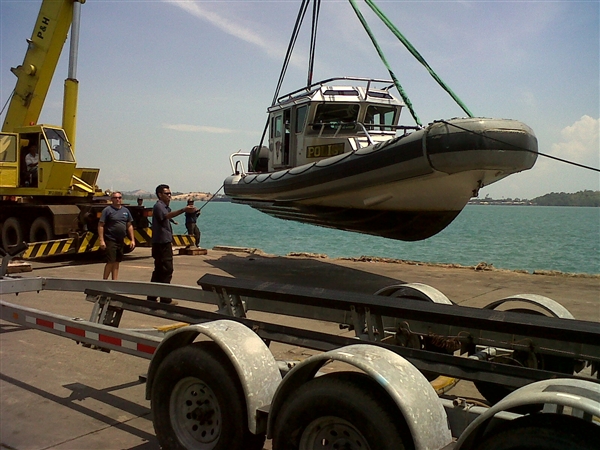WASHINGTON, Sept. 27, 2011 — Despite difficulties in the relationship between the United States and Pakistan, the Defense Department will continue to try to work through the differences, Pentagon Press Secretary George Little said today.
“We want to maintain a relationship with Pakistan that’s grounded in common interests, to include going after terrorists that threaten both countries,” Little told Pentagon reporters in a briefing that included Joint Staff spokesman Navy Capt. John Kirby.
“There are differences from time to time in the relationship with Pakistan, as there are in any partnership,” he added. “Those differences have been made public, and we continue to discuss [them] in private.”
Last weekend, according to a Sept. 26 statement from the U.S. Embassy in Islamabad, Pakistan, Marine Corps Gen. James N. Mattis, commander of U.S. Central Command, met there with Gen. Ashfaq Kayani, chief of the Pakistani army, and Gen. Khalid Wynne, chief of staff of the Pakistani armed forces.
“The generals had candid discussions about the current challenges in the U.S.-Pakistan relationship,” the embassy reported, and Mattis emphasized the vital role of the Pakistan military in international security efforts to protect the people of Pakistan and Afghanistan.
Navy Adm. Mike Mullen, chairman of the Joint Chiefs of Staff, discussed the challenges Sept. 22 in testimony before the Senate Armed Services Committee, citing as an example “the impunity with which certain extremist groups are allowed to operate from Pakistani soil.”
The Haqqani network, he told the committee, “acts as a veritable arm of Pakistan’s Inter-Services Intelligence agency.”
ISI-supported Haqqani operatives planned and conducted the Sept. 10 truck bomb attack that killed five people and wounded 77 in Kabul, Afghanistan, and the assault there last week on the U.S. embassy, Mullen said, along with the June 28 attack on the Inter-Continental Hotel, also in the capital city, and other operations.
“In choosing to use violent extremism as an instrument of policy, the government of Pakistan, and most especially the Pakistani army and ISI, jeopardizes not only the prospect of our strategic partnership, but Pakistan’s opportunity to be a respected nation with legitimate regional influence,” the chairman said.
By exporting violence, Mullen said, the government has eroded its internal security and position in the region, and undermined its international credibility and economic well-being.
“Only a decision to break with this policy can pave the road to a positive future for Pakistan,” he said.
“We’ve had discussions with [the government of Pakistan] and expressed these concerns,” Kirby told reporters, adding, “We’ve provided, in the past, examples of how we know this complicity continues to exist.”
Kirby said the chairman’s testimony was “a reflection of his growing frustration over the course of the summer of the increased and increasingly brazen activities of the Haqqani network.”
Nevertheless, Mullen told the senators, military cooperation, again, is warming and transparency slowly is returning.
Without Pakistan’s help, he said, “We would be in a far tougher situation in the wake of the frostiness which fell over us after the bin Laden raid were it not for the groundwork General Kayani and I had laid, were it not for the fact that we could at least have a conversation about the way ahead, however difficult that conversation might be.”
What matters most right now is moving forward, Mullen added.
The Defense Department, Little said, looks forward to working with the Pakistanis to try to resolve such differences.
“It’s important that both sides continue the dialogue,” he added, “and that’s happening.”
Source:
U.S. Department of Defense
Office of the Assistant Secretary of Defense (Public Affairs)

 von
von 